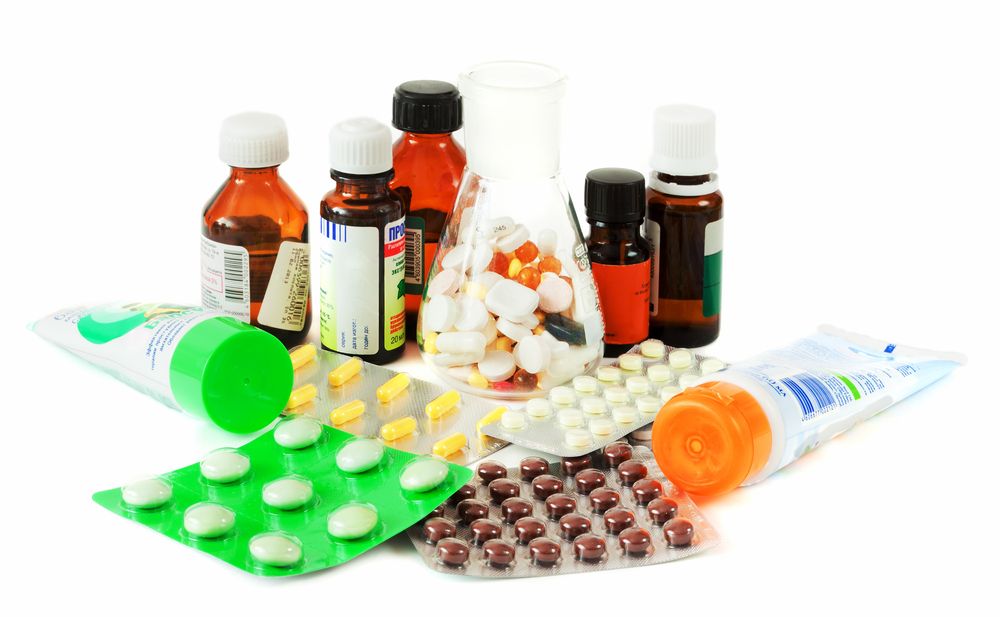Yeast infections (or vaginal candidiasis) are fungal infections characterized by irritation and itchiness of the vagina and vulva, potentially accompanied by discharge.
While severe cases may require more thorough care, yeast infections are generally not especially dangerous and can be treated with over-the-counter medication. (Learn More — Yeast Infections)
OTC medications are usually quite effective in treating mild to moderately severe yeast infections. If you experience no change, worsening symptoms, or show severe symptoms, talk to a doctor about the best course of treatment. (Learn More — How Effective Are OTC Medications?)
Yeast infection medications will usually take three to seven days to fully treat the infection.
Treatment generally consists of applying an antifungal cream to the vulva or inserting a vaginal tablet or suppository into the vagina. While different, these treatments have similar risks and side effects. When used as directed, they are safe and effective.
Familiarize yourself with any medication’s proper use and potential risks before using it. (Learn More — OTC Yeast Infection Treatments)
Fully understand how to apply your medication, and ask a doctor for advice if necessary. Tell a doctor if you are pregnant or intend to become pregnant before using any yeast infection medication.
While treating a yeast infection, it’s advised to avoid anything entering the vagina. (Learn More — Proper Use and Precautions)
Yeast Infections
A yeast infection, also called vaginal candidiasis is a fungal infection characterized by intense irritation and itchiness of the vagina and vulva. It can cause a thick, white discharge that generally has no real odor and a cottage cheese-like appearance. There can also be a different type of discharge that is watery.
While potentially embarrassing and generally quite uncomfortable, yeast infections are both fairly common and not usually a major concern. Even so, you should seek treatment immediately to relieve your discomfort.
Yeast infections are treatable. They can often be resolved with OTC medications (discussed below).
Some symptoms and complications might signal that your yeast infection is serious enough to warrant further treatment. Talk to your doctor more extensively to make sure there are no further concerns.
More serious symptoms or complications include:
- Severe symptoms, such as swelling or itching that leads to cracks, tears, or sores.
- Being pregnant while you have a yeast infection.
- Having uncontrolled diabetes.
- Having a compromised immune system, such as people with HIV.
- Being infected with a less typical fungus.
- Suffering from four or more yeast infections in a single year.
How Effective Are OTC Medications?
In medicine, there is a widely accepted practice that a patient should be treated via the safest course possible that will still solve their problem. This makes sense. Heavy-duty medications tend to have more serious risks and side effects than their milder counterparts, so the weakest medication that will be effective is preferred.
 Over-the-counter treatments for yeast infections largely use the same ingredients as prescription treatments, just in lower doses. For most people, these medications will serve their purposes and have fewer downsides.
Over-the-counter treatments for yeast infections largely use the same ingredients as prescription treatments, just in lower doses. For most people, these medications will serve their purposes and have fewer downsides.
Talk to a doctor if you are concerned about the efficacy of over-the-counter options or if you feel your yeast infections symptoms are severe enough to require a different solution.
OTC Yeast Infection Treatments
For mild to moderate symptoms, there are a number of OTC yeast infection treatment options. Treatment usually takes three to seven days. It can come in the form of creams, ointments, vaginal tablets, and suppositories.
Regardless of the treatment option you choose or your doctor recommends, read the instructions and warnings carefully. Never use a medication except as instructed on the box or by your doctor. If the medication seems ineffective, talk to a doctor about the best course of action.
These common medications are used to treat yeast infections:
- Clotrimazole (Gyne-Lotrimin Cream, Trivagizole 3 Cream): Generally sold as a cream but also available as a suppository or tablet, this is an antifungal medication applied to the vagina and vulva. It is in the class of antifungals called imidazoles, which stop fungi from growing.
If clotrimazole seems to worsen your symptoms and that worsening does not fade, tell your doctor. In rare cases, it can cause more serious symptoms, such as hives, foul-smelling discharge, and other issues. These warrant an immediate call to your doctor, as they can be the signs of a dangerous reaction. - Butoconazole (Femstat 3, Gynazole-1): This is another antifungal cream that carries largely the same caveats as clotrimazole. It is an imidazole derivative.
Always familiarize yourself with the potential symptoms that warrant immediately contacting your doctor if you are taking butoconazole. - Miconazole nitrate (Monistat cream, Monistat suppositories): This medication is approved for people 12 years and older, and it is an imidazole.
Potential side effects that warrant contacting a doctor immediately include hives and rash. Like the two medications above, you should contact a doctor if the medication seems to worsen symptoms. - Tioconazole (Vagistat-1): Tioconazole is an imidazole drug, like all of the above, with similar risks and side effects to the other drugs in this category.
All of the above are very similar to each other in terms of efficacy and risks. Unless you have a bad reaction to one, any should suffice for treating most yeast infections. If you do have a bad reaction to one or your treatment seems ineffective, always talk to a doctor before simply trying another.
Proper Use and Precautions
If you follow the instructions provided by your medication’s container or your doctor carefully, applying vaginal creams, tablets, or suppositories is generally a relatively straightforward process.

If you are at all confused, ask your doctor clarifying questions. While it may seem embarrassing, it is understandable that you may not know everything about an application method most people don’t frequently have to perform. Your doctor wants you to be healthy and safe. They should be able to answer any questions without judgment.
If you are pregnant or plan to become pregnant, let your doctor know before taking any medication to treat yeast infections. Do not purchase one yourself without first talking with a doctor.
Avoid vaginal intercourse and/or the use of vaginal products, such as tampons or douche, while you are using a yeast infection medication unless explicitly okayed by a doctor. Even menstrual pads are best avoided as they can hold moisture and foster yeast growth.
If you choose to have sex, understand that some medications are oil-based. This means they can cause most conventional condoms and other methods of sexual protection to potentially break.
References
Yeast Infection (Vaginal): Symptoms & Causes. (July 2019). Mayo Foundation for Medical Education and Research (MFMER).
Yeast Infection (Vaginal): Diagnosis & Treatment. (July 2019). Mayo Foundation for Medical Education and Research (MFMER).
Is OTC Treatment OK for a Vaginal Yeast Infection? (January 2018). WebMD.
Prescription Treatments for Vaginal Yeast Infections. (January 2018). WebMD.
Clotrimazole Vaginal. (July 2019). MedlinePlus.
Butoconazole Vaginal Cream. (July 2019). MedlinePlus.
Miconazole Vaginal. (July 2019). MedlinePlus.
Tioconazole-1 6.5 % Vaginal Ointment. WebMD.
Yeast Infection and Periods. Lunette.


